Dog Sounds Congested When Sleeping [Help!]
Our dogs make all kinds of strange noises, often when we least expect them. But sometimes, a dog sounds congested when sleeping and makes you wonder if something is wrong.
I know from experience that this can be a little nerve-wracking. The good news is that most of the reasons your dog sounds congested when sleeping are minor, temporary things that shouldn’t cause you to worry.
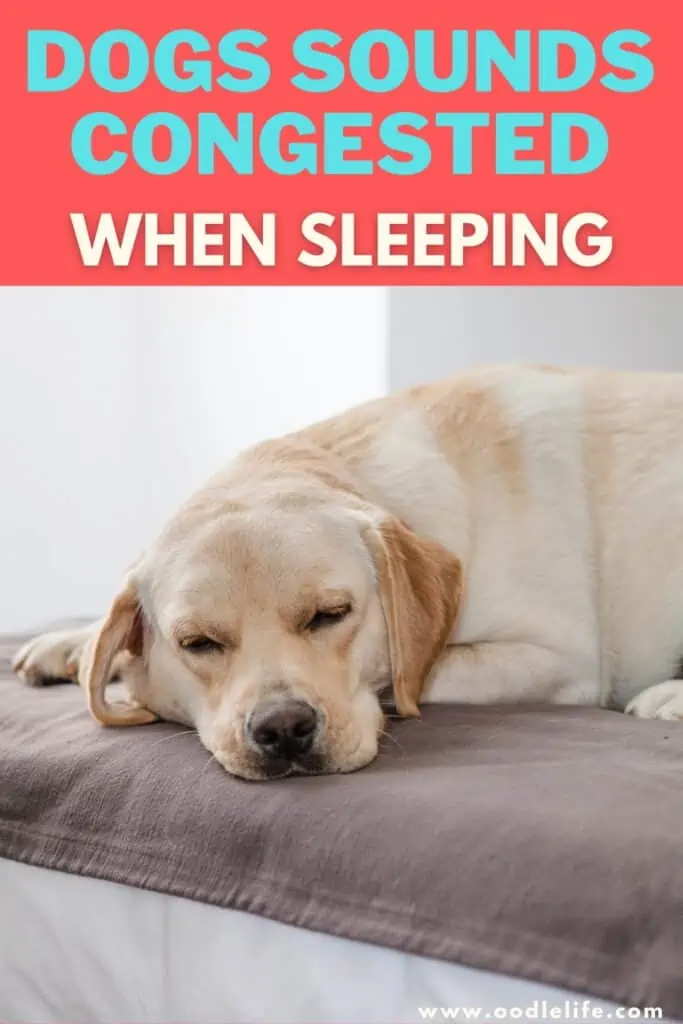
Everything from your dog being overweight to a temporary and mild cold can make your pup sound different while it’s asleep. In some cases, a simple shift in position can fix the problem.
Why Your Dog Sounds Congested When Sleeping?
If your dog’s congestion is severe and sudden, or you notice heavy breathing, you should always contact your veterinarian for guidance on what to do. But mild congestion sounds during sleep are otherwise normal.
Let’s look at the most common reasons your dog sounds congested when sleeping.
Breed-Specific Breathing Issues
If you haven’t had your dog very long and have started noticing it makes congested sounds while sleeping, look at the breed.
Some breeds are prone to congested breathing, like Pugs, Bulldogs, and other breeds with flat noses and faces.
The shape of their skulls and facial bones restrict their breathing in ways long-nosed breeds will never know. These breeds can make funny noises while they’re sleeping and are prone to snoring and congested sounds even when they’re awake and active.
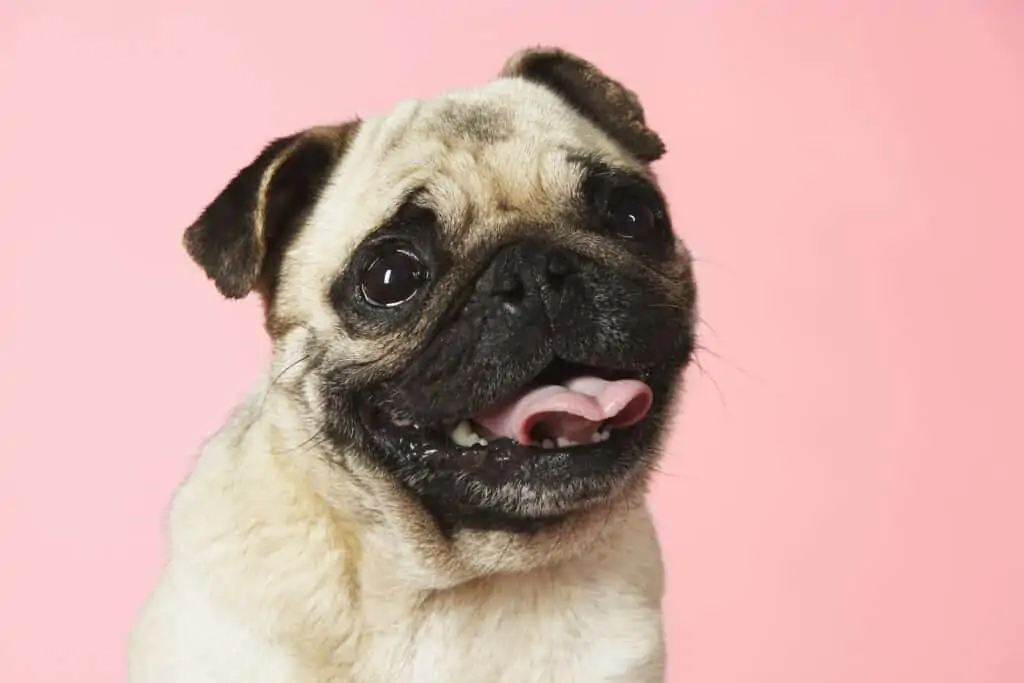
Obesity
One of the most common reasons for congested-sounding breathing during sleep is obesity.
If you give your dog table scraps, too many treats, or you give them too much dog food, you can end up with an overweight pup.
Obesity in dogs is just as serious as obesity in people. The extra weight can lead to metabolic problems and other issues resulting in poor health and more trips to the vet. One of the ways obesity interferes with your dog’s sleep is by affecting how the dog breathes.
Fat stores around the neck and upper chest can press against the windpipe, especially in certain sleeping positions. This pressure can narrow the trachea and obstruct breathing from a minor amount to causing apnea.
If obesity is causing your dog’s congestion, it’s an easy problem to solve with some modifications to the feeding schedule. You can also take your dog for more walks and get more active to help your pup burn off more kibble and treats.
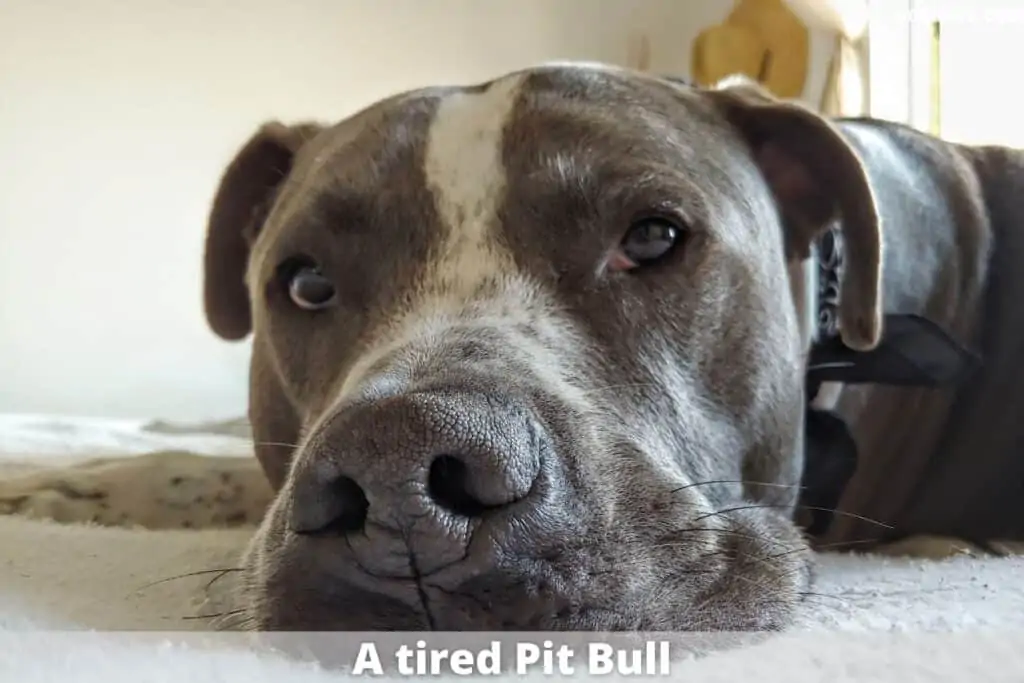
Sleeping Position
Another common reason your dog might sound congested when lying down is that it’s sleeping in an unusual position that causes the breathing to sound different.
If a dog sleeps on its back when it usually doesn’t, its breathing can be entirely different and sound labored or congested. When your dog wakes and shifts position, it should sound normal again.
If you’re concerned, you can gently wake your pup and try to get it into a different position to see if the congested sounds go away. They usually will.
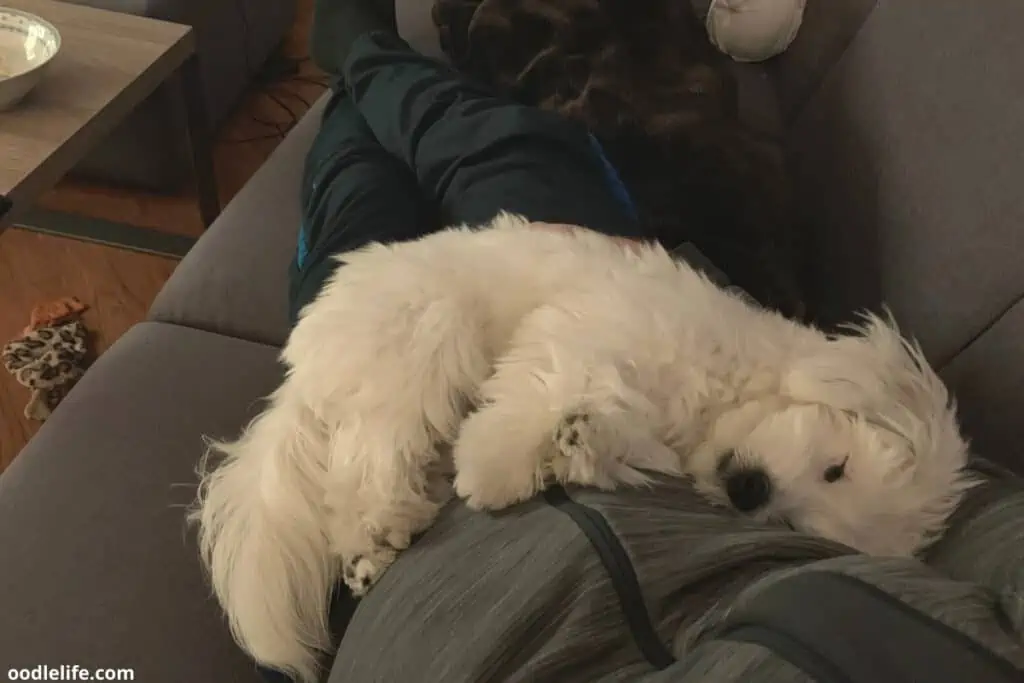
Allergies
Allergies can also cause congested-sounding breathing while sleeping.
Some people are never bothered by allergies, while others have to take medication every day to make life bearable during certain times of the year.
Dogs are no different. Some aren’t affected, while others suffer from congestion from the first moment pollen flies until the year’s first freeze.
Mild allergies are common in dogs, so the occasional bout of congestion shouldn’t worry you. If your dog sounds congested when sleeping enough that it concerns you, the vet might be able to offer medication for your dog’s allergies.
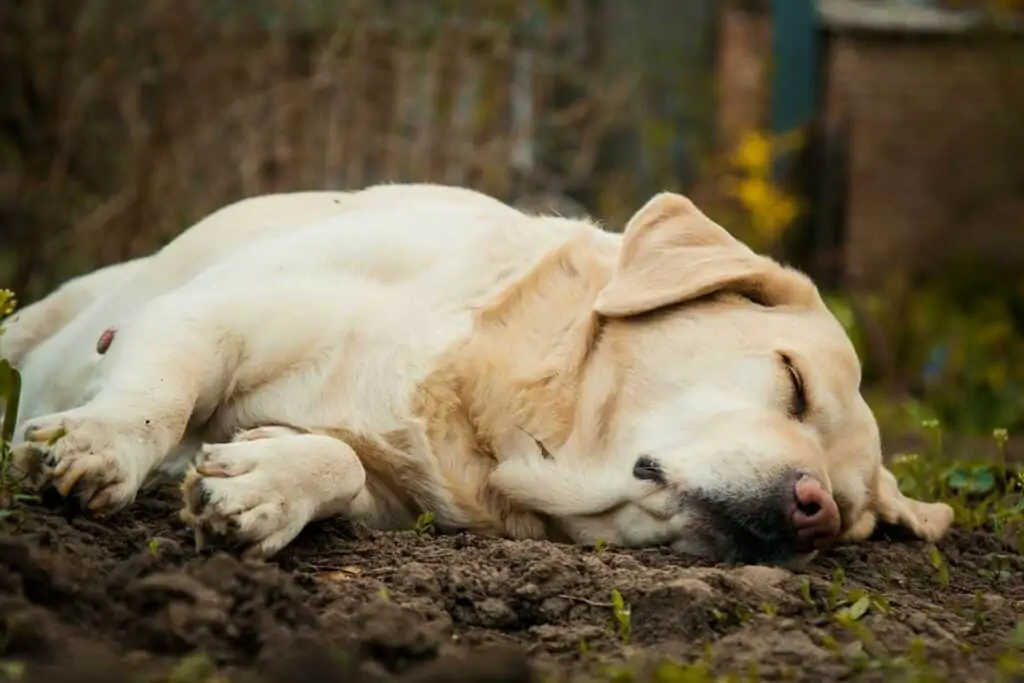
Mild Illness
Your dog might also have a simple cold. Dogs get mild viruses just like people do, and when they’re sick with a cold, they often get congested. They can run fevers and have runny noses just like people too.
Cold symptoms will usually resolve in dogs within a few days, but you should see your veterinarian if they last longer than that.
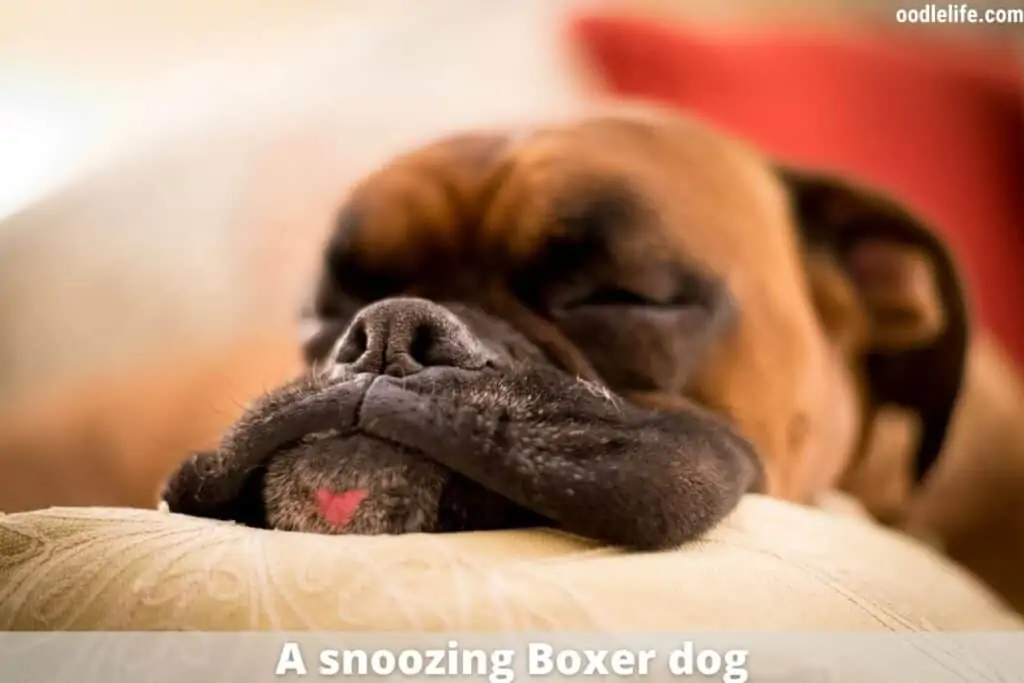
Bad Teeth
Have you had your dog’s teeth checked lately? Sometimes dental issues like inflamed gums or tooth decay can cause congested sounds while sleeping.
Your dog might hold its mouth differently because of pain swelling, which can lead to changes in the shape of your pet’s airway when sleeping, resulting in congested sounds.

Medication Side-Effects
If congested sounds start suddenly after your dog starts taking medicine, you should contact your vet to ask about that.
Some medications cause the mouth and throat to be drier than other times, changing how a dog sounds while breathing. Other treatments can induce a deeper sleep than usual, which will change the sound of your pet’s nighttime breathing.
Age
If you’re wondering why your dog sounds congested while sleeping, age may be a factor.
Older dogs can lose some of the structure in their airway as the cartilage weakens, causing changes in their breathing, especially as they relax in sleep.
If your dog snores more over time, the congested sounds are probably age-related.
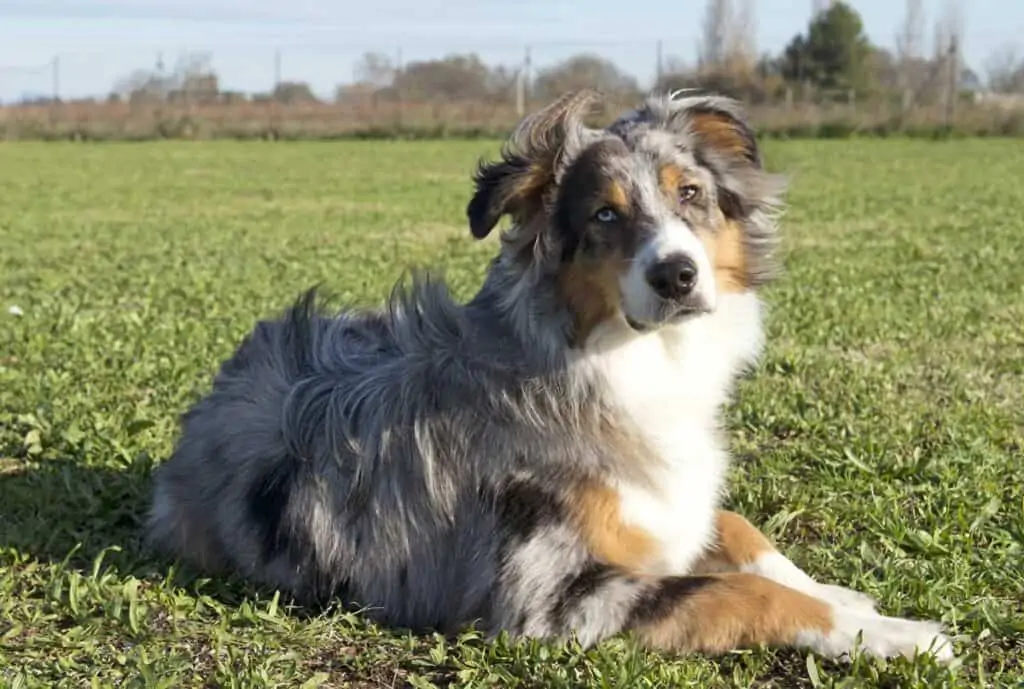
Debris Inhalation
Finally, this cause of congested sounds while sleeping isn’t common, but it can happen, especially to curious dogs who sniff everything, like puppies.
If the change was sudden and your dog behaves as if it’s uncomfortable, your dog might have inhaled a foreign object. Typically, you’ll see your dog scratching at its face or sneezing a lot.
An inhalation could be something as tiny as parts of a blade of grass or a tiny rock. Sometimes, dogs inhale larger objects like bits of food that can get stuck deep in nasal passages.
If you suspect your dog inhaled something, contact your vet to find it and remove it as soon as possible.

Wrap Up
Any recent change could be associated with a difference in how your dog sounds while asleep.
Weather fluctuations, a new sleeping spot, and even the amount of humidity in the air at any given time can determine whether your pup snores or sleeps quietly.
If you rule out all these options and your dog still sounds congested, a quick trip to the vet can set your mind at ease or find the problem so you can offer your dog some relief.